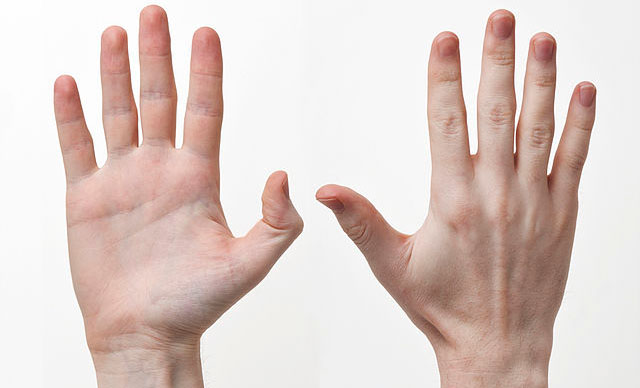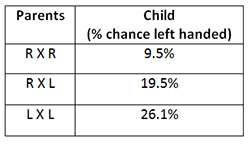
Scientists have struggled for a long time to explain why 85-90% of people are right-handed. They’ve known genetics plays an important role in people occasionally ending up left-handed, but they also know it is not the whole story. The consensus appears to be that around 25% of handedness can be explained by genes.
Of course, there is a big difference between knowing genetics is involved and identifying the actual genes. But now it looks like scientists may finally be starting to make some progress in identifying some of these handedness genes.
In a new study looking at people with dyslexia, researchers found that genes involved in making our brains and bodies have a distinct left and right side may also be involved in handedness too. If these genes are really important for handedness, then they may also provide an explanation for why most people are right-handed—because language and handedness evolved together, hand in hand.
There were hints in earlier research that this might be the case. Speech is housed in the left part of the brain in 95% of right-handed people but only 70% of left-handed people. Clearly there is a connection but it is by no means the whole story as only 30% of lefties use the right side of their brain for language.

So one way to think about right-handedness is that it is simply a side effect of language development (an evolutionary spandrel). Sort of like our big brains possibly being a side effect of the smaller jaws we needed once we changed our diet. If this is the case, then there is no need to invoke some disadvantage to being a lefty. (And no, it is an urban myth that lefties die early.)
